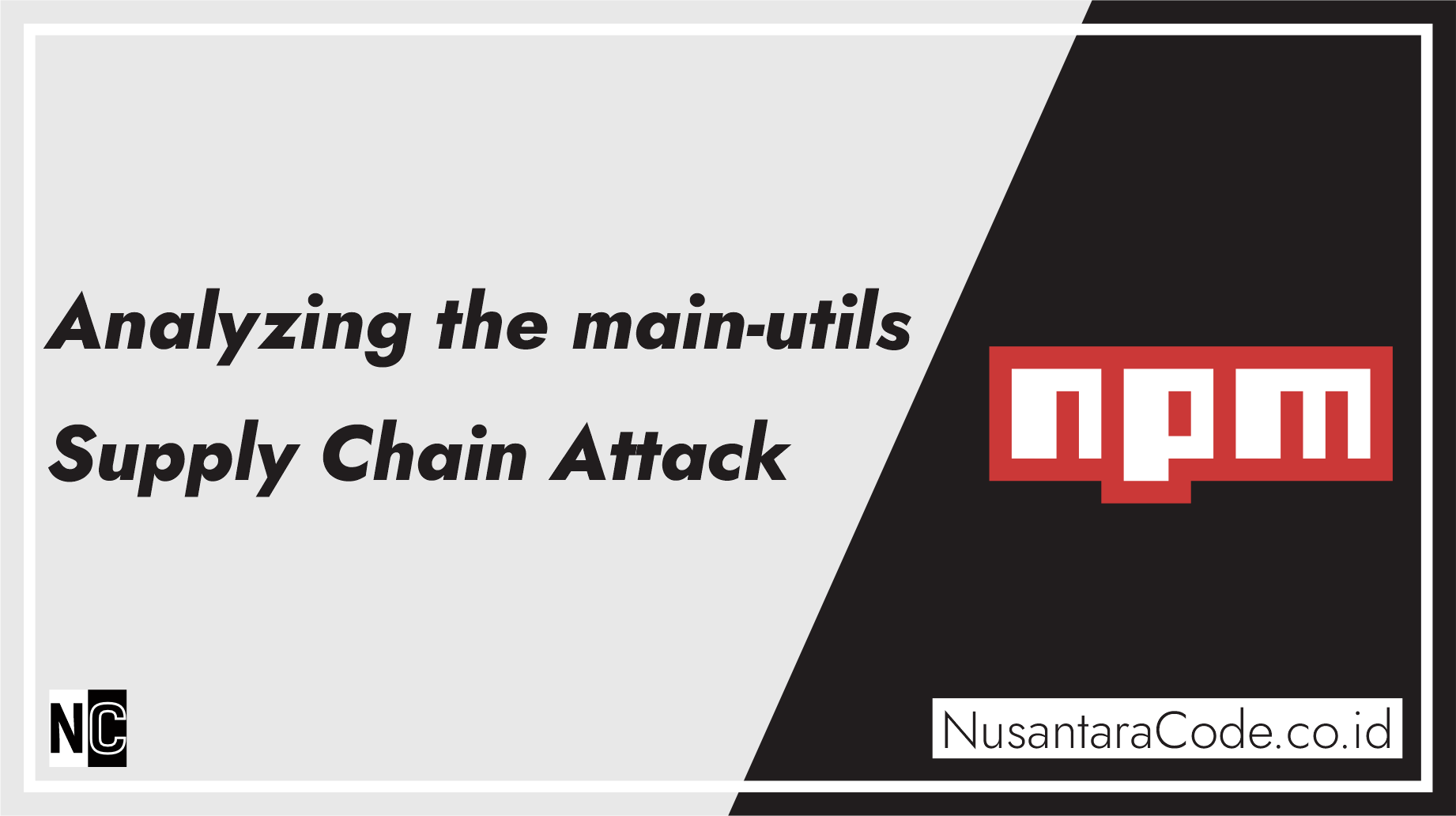The open-source community, a cornerstone of modern software development, has been shaken by a recent supply chain attack targeting the popular NPM package, main-utils. This incident highlights the vulnerabilities inherent in open-source ecosystems and underscores the need for robust security practices at every stage of software development.
The Anatomy of the Attack:
Hackers injected malicious code into the main-utils package, which provides utility functions commonly used by Node.js projects. This code, disguised as seemingly harmless functionality, could potentially steal sensitive data, inject malware, or disrupt program execution. The compromised package was then uploaded to the NPM registry, a trusted repository for millions of developers.
The Fallout:
The widespread adoption of main-utils made it prime prey for attackers. Thousands of unsuspecting developers unknowingly integrated the tainted package into their projects, putting their code and potentially their users’ data at risk. The incident prompted a swift response from the NPM team, who quickly removed the malicious version and alerted developers to the vulnerability.
Lessons Learned:
This attack serves as a stark reminder of the inherent risks associated with relying on open-source software. While the collaborative nature of open source fosters innovation and rapid development, it also creates opportunities for malicious actors to exploit vulnerabilities.
Here are some key takeaways:
- Verify Code Provenance: Don’t blindly trust any package, even popular ones. Carefully review the author, changelog, and code itself before integrating it into your project.
- Monitor Dependencies: Stay updated on any vulnerabilities discovered in your existing dependencies and update them promptly.
- Implement Code Signing: Consider using code signing tools to verify the integrity of packages before installation.
- Contribute to Security: Developers can contribute to a safer ecosystem by writing secure code, conducting thorough testing, and reporting vulnerabilities responsibly.
Building a More Secure Future:
The main-utils attack underscores the need for a multi-pronged approach to secure the open-source ecosystem. Individual developers, package maintainers, and platform providers must all work together to implement robust security practices throughout the software development lifecycle. This includes:
- Enhancing Security Audits: Conducting more rigorous audits of popular packages to identify and address potential vulnerabilities.
- Improving Package Management Tools: Implementing additional security features within package managers like NPM to detect and prevent malicious code injections.
- Raising Awareness: Educating developers about supply chain security risks and best practices for using open-source software safely.
The main-utils attack may be a wake-up call, but it’s also an opportunity. By acknowledging the vulnerabilities, learning from this incident, and taking proactive steps toward better security, the open-source community can become even stronger and more resilient in the face of future threats.
